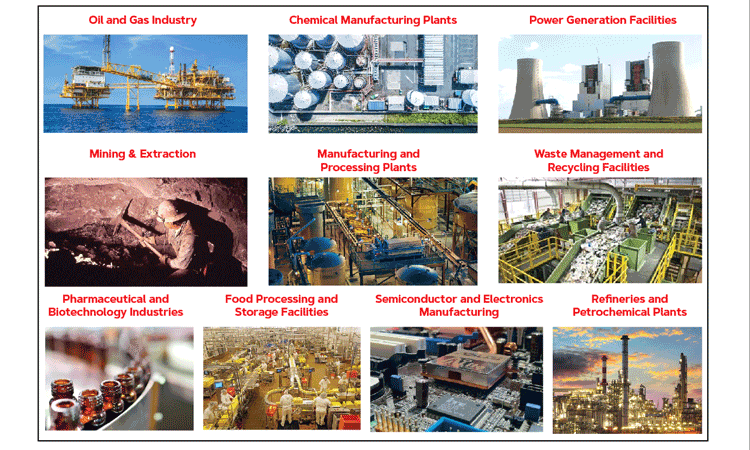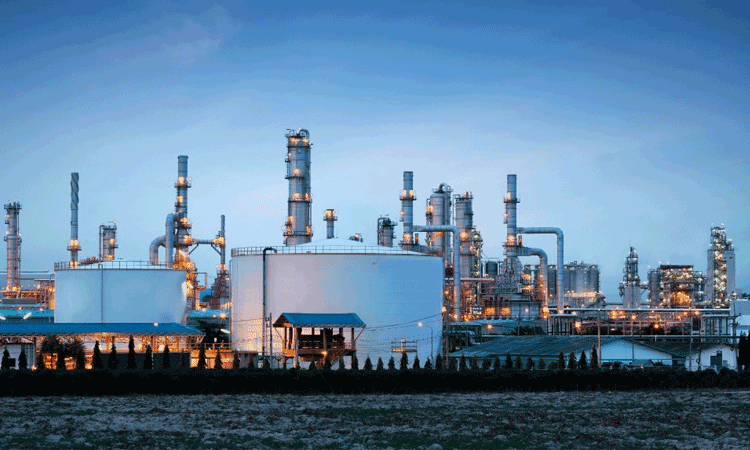Introduction
Gas detectors are indispensable devices in various industrial sectors, providing critical safety measures and ensuring compliance with regulations. In industrial settings, the presence of hazardous gases can pose significant risks to workers, equipment, and the environment. Gas detectors play a vital role in monitoring gas levels, detecting leaks, and triggering timely alarms, enabling prompt actions to prevent accidents and maintain a safe working environment. This article explores the diverse applications of gas detectors in industrial sectors, highlighting their importance in ensuring safety and compliance.
Oil and Gas Industry
Gas detectors are extensively used throughout the oil and gas industry to monitor flammable gases such as methane, hydrocarbons, and hydrogen sulphide. From upstream exploration and drilling operations to downstream refining and storage facilities, gas detectors provide continuous monitoring, enabling early detection of gas leaks and preventing potential explosions or fires.
Chemical Manufacturing Plants
Chemical manufacturing plants handle a wide range of hazardous substances and gases. Gas detectors are crucial in these facilities to monitor volatile organic compounds (VOCs), toxic gases, and corrosive vapours. Detecting leaks or abnormal gas levels helps protect workers, prevent chemical reactions, and mitigate potential hazards.
Power Generation Facilities
Gas detectors are essential in power plants, particularly those using fossil fuels or producing biogas. They monitor gases like carbon monoxide, nitrogen dioxide, and hydrogen, ensuring the safety of workers and preventing gas-related incidents or equipment malfunctions.
Mining & Extraction
In mining and extraction industries, gas detectors are vital for monitoring gases such as methane, carbon monoxide, and hydrogen sulfide. These detectors help protect miners from potential health hazards and ensure compliance with safety regulations, minimizing the risk of explosions or asphyxiation.
Manufacturing and Processing Plants
Gas detectors play a crucial role in manufacturing and processing plants where gases like ammonia, chlorine, or hydrogen are used. These detectors provide continuous monitoring, ensuring worker safety, preventing chemical leaks, and maintaining optimal conditions for production processes.
Waste Management and Recycling Facilities
Gas detectors are essential in waste management and recycling facilities to monitor gases produced during waste decomposition, such as methane and hydrogen sulphide. By detecting potentially hazardous gas levels, these detectors help safeguard workers and prevent the release of harmful gases into the environment.
Pharmaceutical and Biotechnology Industries
Gas detectors find applications in pharmaceutical and biotechnology industries, where hazardous gases and vapours may be present during manufacturing processes. They help maintain safe working conditions, protect workers from exposure to toxic substances, and ensure compliance with regulatory standards.

Food Processing and Storage Facilities
Gas detectors are critical in food processing and storage facilities to monitor gases like carbon dioxide and ammonia, which can pose risks to workers and compromise product quality. Continuous gas monitoring ensures a safe environment for employees and helps maintain the integrity of food products.
Semiconductor and Electronics Manufacturing
Gas detectors are extensively used in semiconductor and electronics manufacturing to monitor gases such as hydrogen, nitrogen, and sulphur hexafluoride. These detectors ensure the safety of workers and prevent the release of hazardous gases that can damage sensitive electronic components.
Refineries and Petrochemical Plants
Gas detectors play a crucial role in refineries and petrochemical plants, where various gases, including volatile organic compounds (VOCs) and toxic gases, are present. By continuously monitoring gas levels, detectors help prevent leaks, protect workers, and minimize the risk of explosions or environmental contamination.
Conclusion:
Gas detectors are vital tools in various industrial applications, ensuring the safety of workers, preventing accidents, and promoting regulatory compliance. By monitoring gas levels, detecting leaks, and providing timely alarms, these devices enable swift response, mitigating potential hazards and creating a safer working environment. The widespread use of gas detectors in.
PRIMA, INDIA, is a one stop solution that serves the wide range of customized solutions of gas detectors for the various applicable area at your plant locations. PRIMA provides an ISO/IEC 17025:2017 accredited laboratory calibrated gas detector. Benefits of the Calibrated instrument by Accredited Laboratory is Assured of measurement, Prevent Accidents, Reliable Alarms, Safety at workplace, Environmental pollution can be controlled better

For more information:
Web: www.primaequipment.com



